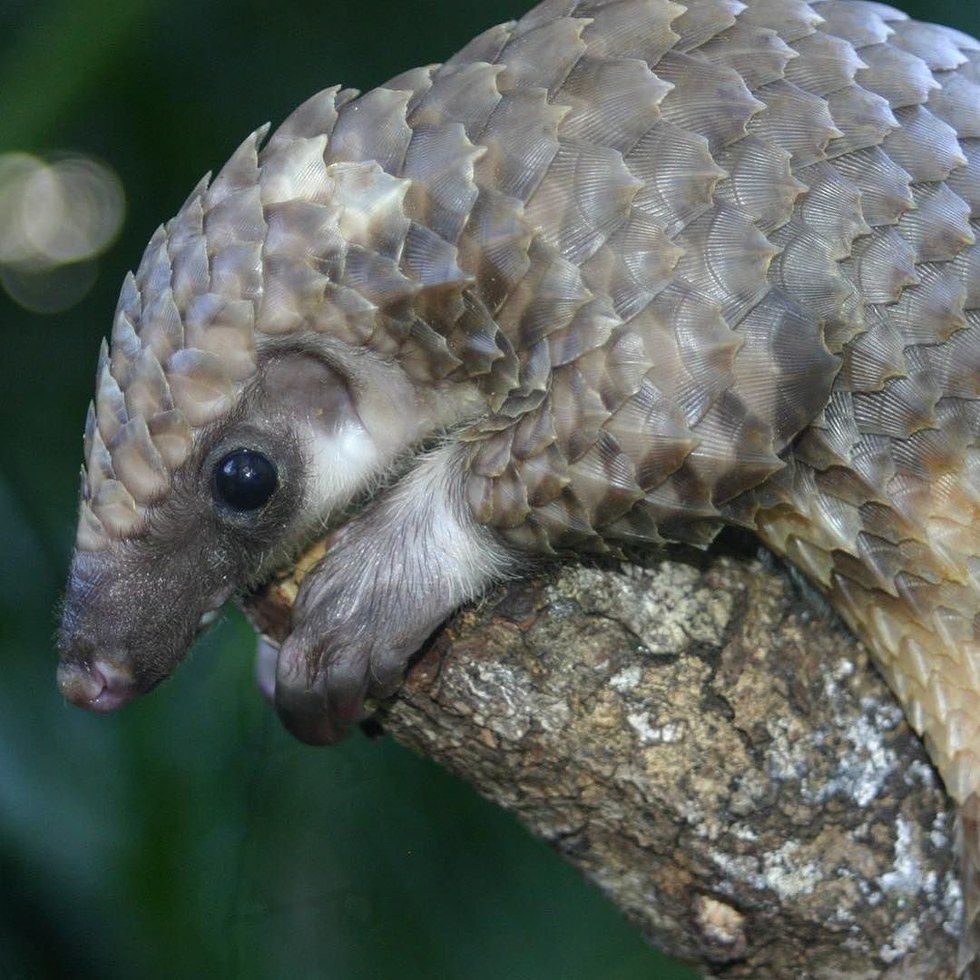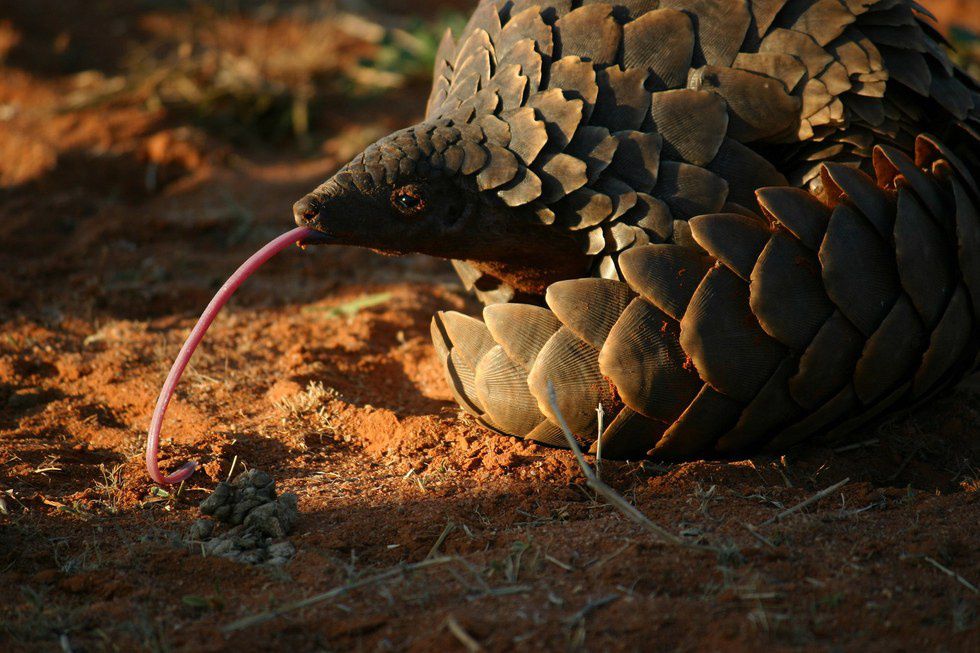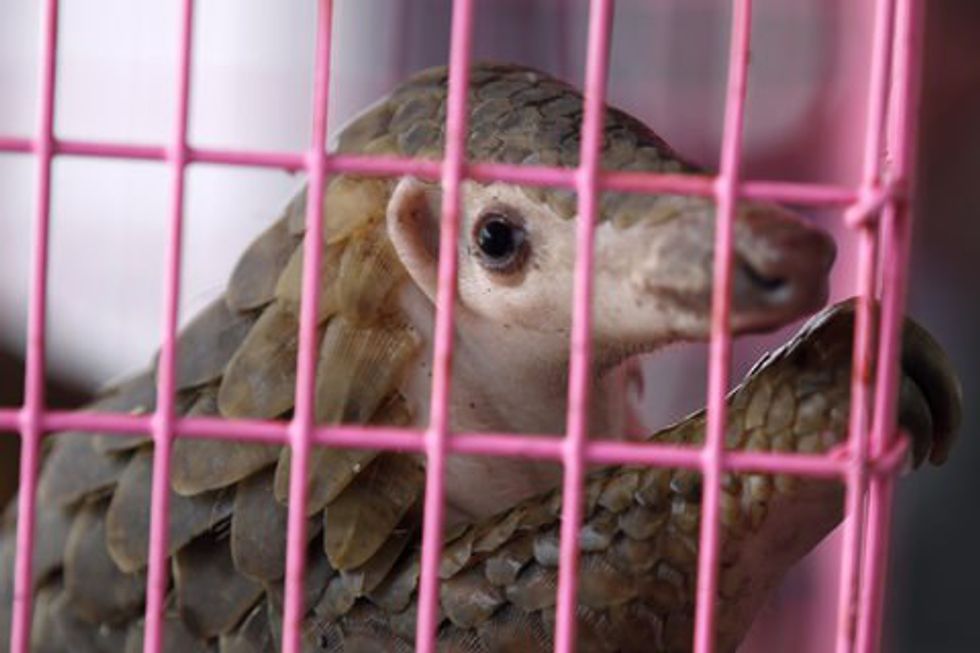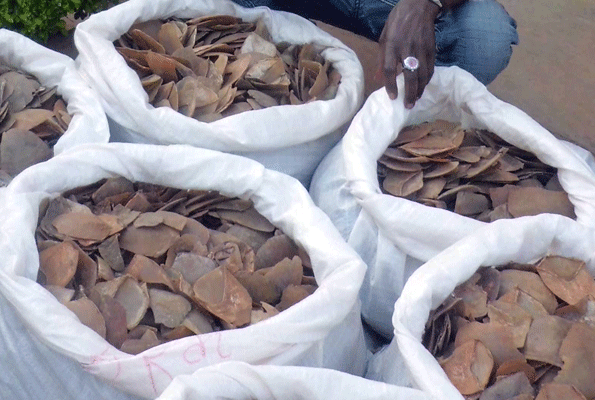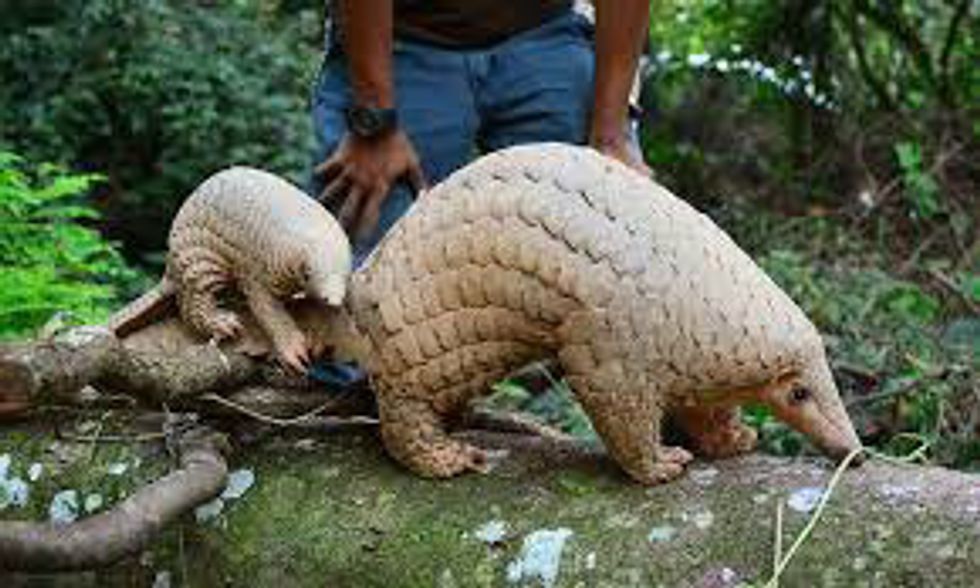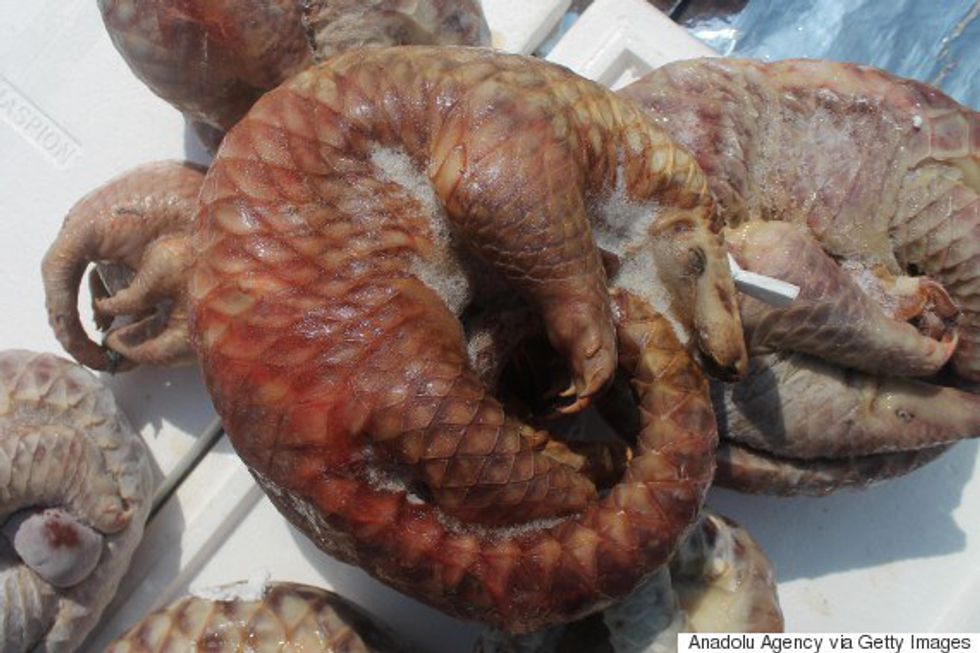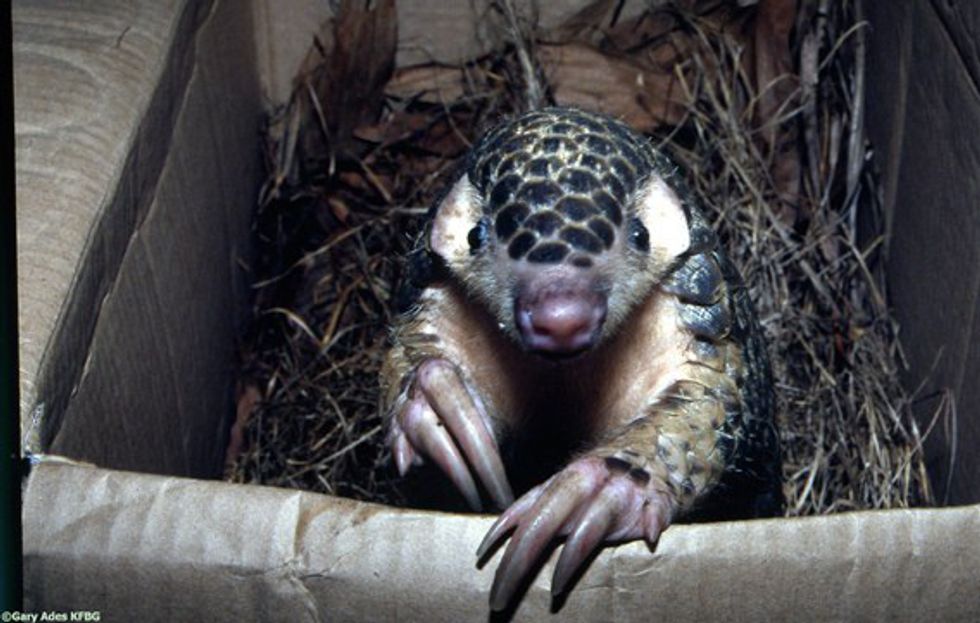The other day I was talking to my friend over Facetime and said, "I don't know why people think pangolins are ugly!" She responded, "Penguins?" "No, pangolins", I said. "Penguins???" "Pangolins, you know, like p-a-n-g-o-l-i-n-s". "What's a pangolin?" "It looks like an anteater with scales" "Wait, let me google it... Uhhh it's... kind of cute I guess? Why are we talking about pangolins."
Pangolins are very unique animals. They're the only mammal with scales, they can curl up into a ball to protect themselves from predators like lions and tigers, and their tongue is as long as their body. There are 8 species of pangolin, and they can be found throughout Africa and Asia.
Most people don't know what a pangolin is, and even when they do know, they might respond with some indifference. It's a very polarizing animal, with some people thinking it's a precious little nugget and others thinking it's a hideously deformed artichoke with legs. What isn't up for debate, however, is the fact that they're in more danger than perhaps any other animal.
Pangolins are one of, if not the, most trafficked animals in the world. Their meat is considered a delicacy in China and Vietnam and their scales (made of keratin) are thought to have value as traditional medicine. I don't know who was the first person to think of eating a pangolin, but they must have been seriously disturbed. Honestly, who would look at a pangolin and think, "OMG, I need to serve this delicious looking creature at my next banquet". China, no offense, has a serious issue when it comes to using beloved endangered animals for "traditional medicine". There must be a lot of sick people there if they need to kill such a large variety of animals, from elephants, to tigers, to sharks, to pangolins, for medicine.
Pangolin scales are considered to heal a variety of ailments, like arthritis and asthma. Newsflash, there is this thing called an inhaler that will probably be better for your asthma than eating ground-up scales made out of the same material as fingernails. There's also Humira, which I know can treat arthritis because the annoying commercials for it come up on Hulu Plus all the time. The scales are also said to help regulate menstruation, to which I can only reply: tampons. birth control. wtf.
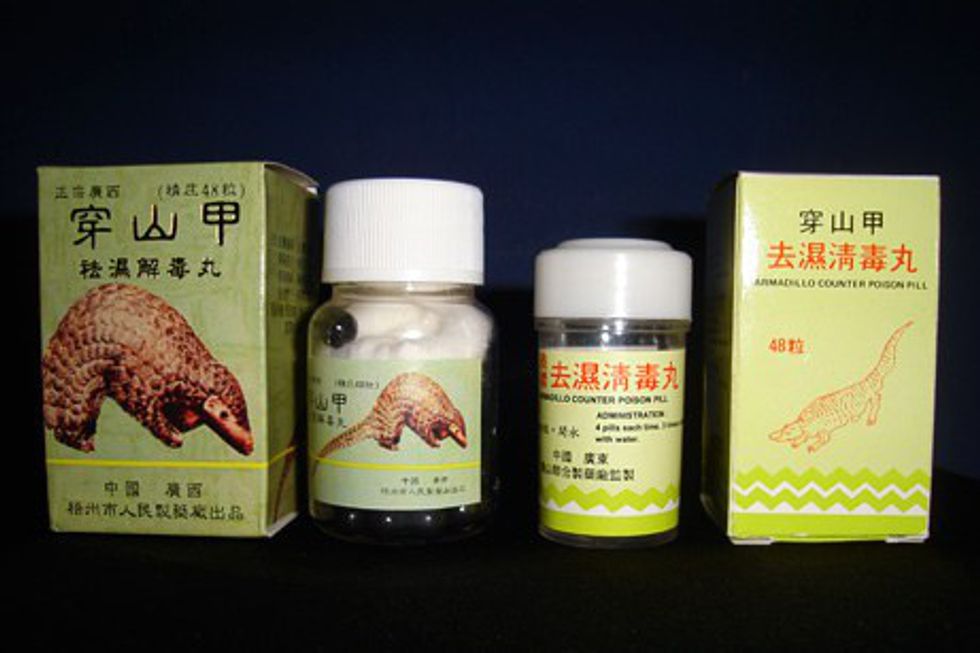
Anyways, pangolins are being killed off and traded on the black market for these reasons at an unprecedented rate, leading to all 8 species being put on the IUCN Red List as endangered. According to reported seizures of pangolin meat from 2011-2013, an estimated 200,000 pangolins were killed, making their population one of the most rapidly declining on earth.
Because little is known about pangolins (they don't do well in captivity, they're shy, and they're nocturnal), it is hard to say how many are actually left. Why is it so hard to figure out the specifics about pangolins? It might be because pangolin researchers get almost no funding. Being an animal conservationist is a thankless and low-paying job, and it's hard enough to get any attention for animals, but sadly whether we care to admit it or not, large, charismatic mammals get the most attention, leaving even less left for the little animals. Unlike other animals whose parts are trafficked in the black market, such as elephants, rhinos, and tigers, pangolins are relatively obscure. This obscurity is partially what allows the illegal traders to get away with what they do.
(Sorry if this is disturbing).
If what happens to a pangolin when it's captured ever happened to a tiger or elephant, I'm sure there would be much more international outrage. The value of pangolins is measured in kilograms, just like large amounts of cocaine. Sometimes captured pangolins are killed and frozen, but sometimes they are kept alive until they are bought, which can almost be worse because they develop deadly stomach ulcers when under stress.
Pangolins are on the menu in Chinese and Vietnamese restaurants, and people order them as a show of status because they can sell for as much as $350 per kilogram. Eating a whole one would cost you about $1750. So basically if Kylie Jenner were weird and Chinese we know what she'd be eating. The pangolin is brought out alive, and the waiter slits its throat right at the table. They even offer to mix the blood in with wine. If more people knew about these atrocities that face pangolins, they might be more inclined to help.
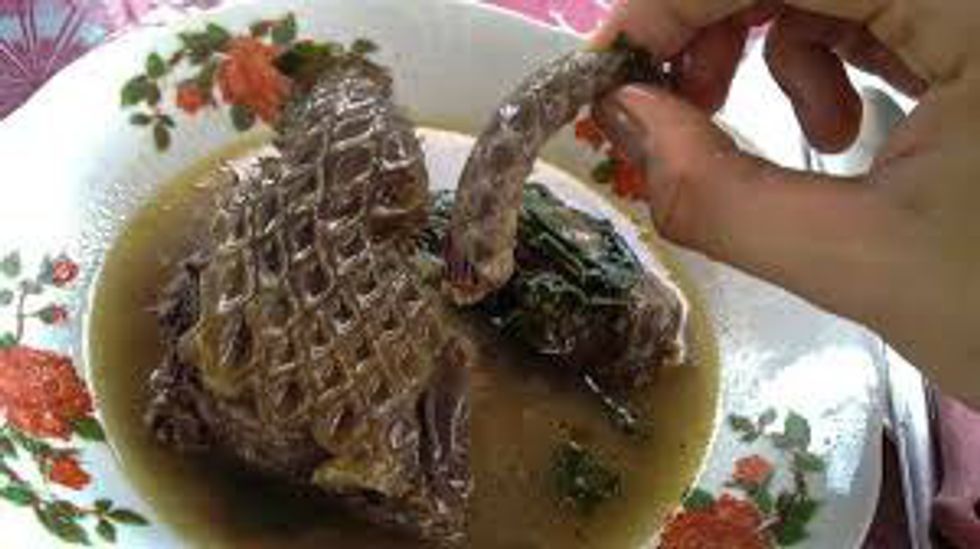
The news is not all bad, however. Recently there have been more serious efforts to help save pangolins. New programs have been created, and now there's even a World Pangolin Day in February. Also worth noting is that Prince William cares about pangolins too. He partnered with Angry Birds, honestly a really random and unexpected choice, for a special promotion of pangolin conservation on the app.
There might be hope for pangolins, but only if we start to care more. Judging by the fact that when I've told people about pangolins, the majority's response was "I really don't give a fuck, stop talking about it", we might have a long way to go. Maybe it's a lot to ask someone to care deeply about a completely irrelevant animal that won't affect their life in any way, but if you cared enough to reach the end of an almost 1000 word article (congrats), that's a start.




